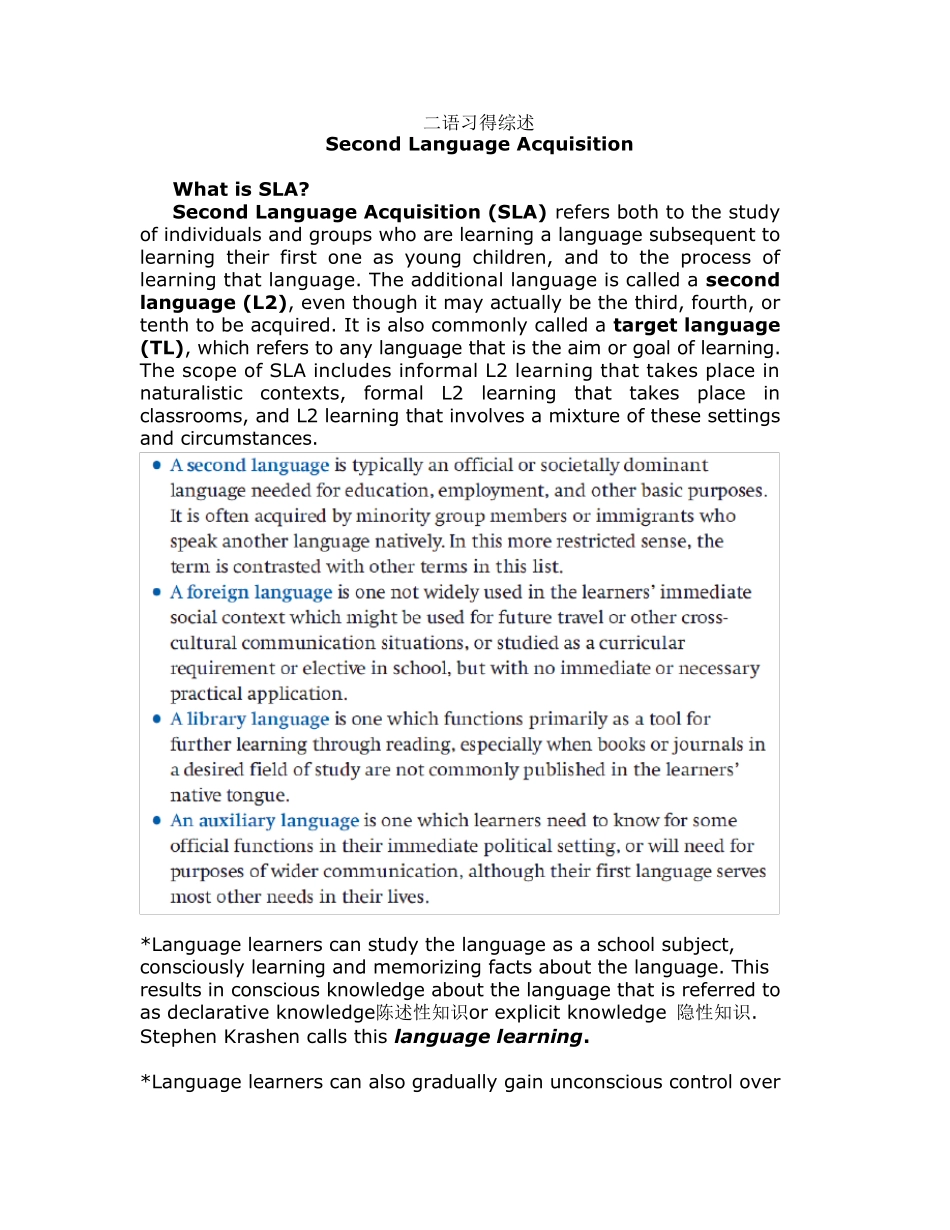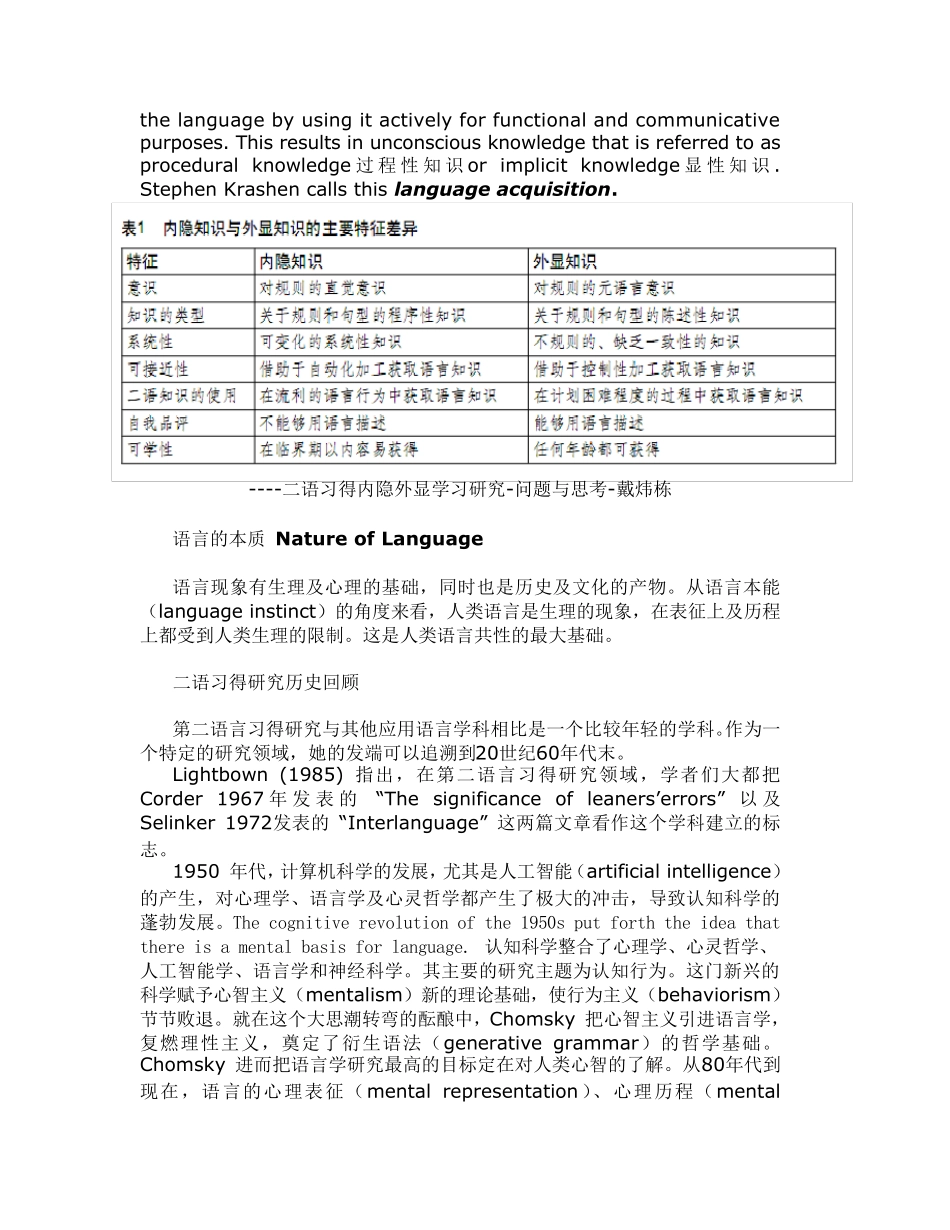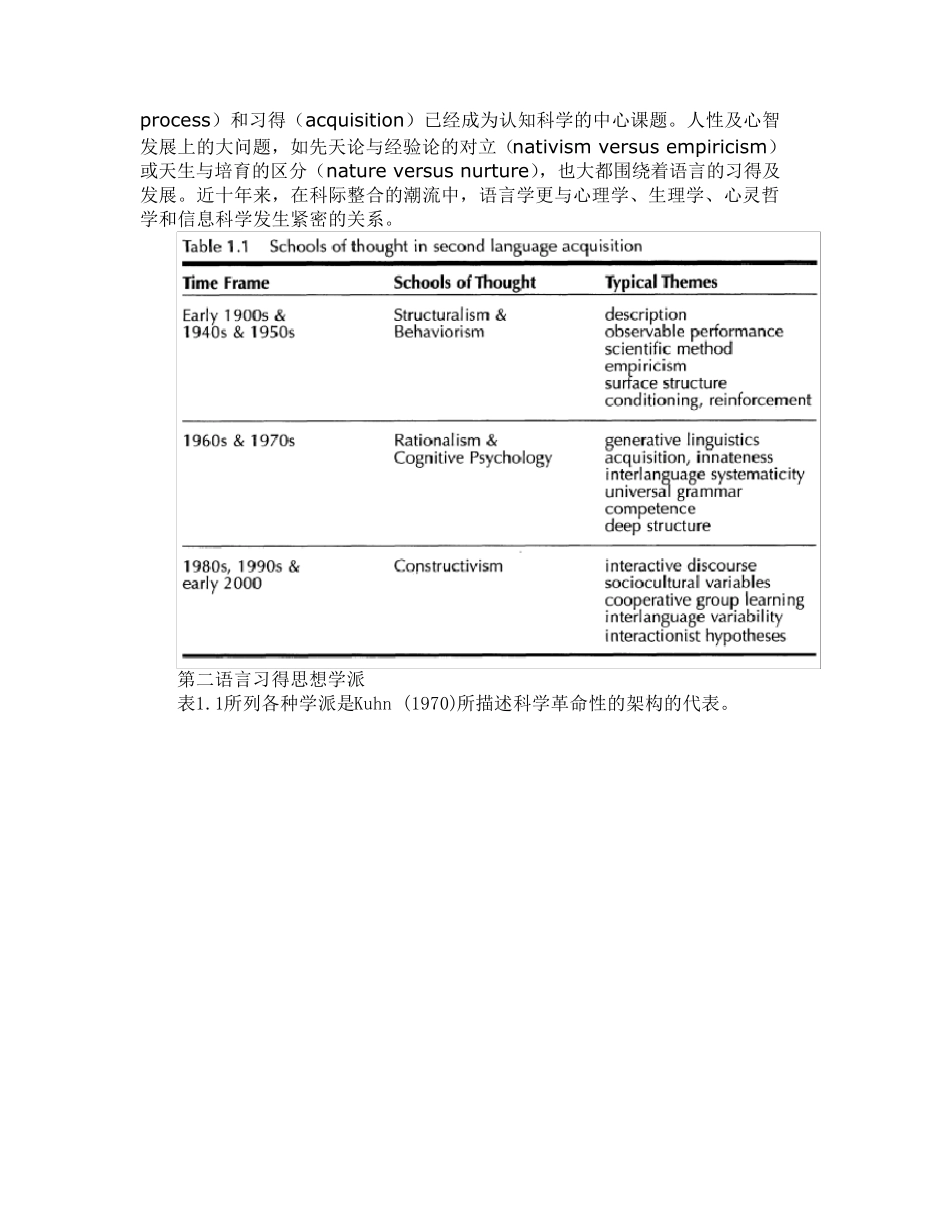二语习得综述 Second Langu age Acqu isition What is SLA? Second Langu age Acqu isition (SLA) refers both to the study of individuals and groups who are learning a language subsequent to learning their first one as young children, and to the process of learning that language. The additional language is called a second langu age (L2), even though it may actually be the third, fourth, or tenth to be acquired. It is also commonly called a target langu age (TL), which refers to any language that is the aim or goal of learning. The scope of SLA includes informal L2 learning that takes place in naturalistic contexts, formal L2 learning that takes place in classrooms, and L2 learning that involves a mixture of these settings and circumstances. *Language learners can study the language as a school subject, consciously learning and memorizing facts about the language. This results in conscious knowledge about the language that is referred to as declarative knowledge陈述性知识or explicit knowledge 隐性知识. Stephen Krashen calls this langu age learning. *Language learners can also gradually gain unconscious control over the language by using it actively for functional and communicative purposes. This results in unconscious knowledge that is referred to as procedural knowledge 过程性知识or implicit knowledge 显性知识. Stephen Krashen calls this langu age acqu isition. ----二语习得内隐外显学习研究-问题与思考-戴炜栋 语言的本质 Natu re of Langu age 语言现象有生理及心理的基础,同时也是历史及文化的产物。从语言本能(language instinct)的角度来看,人类语言是生理的现象,在表征上及历程上都受到人类生理的限制。这是人类语言共性的最大基础。 二语习得研究历史回顾 第二语言习得研究与其他应用语言学科相比是一个比较年轻的学科。作为一个特定的研究领域,她的发端可以追溯到20世纪6...


